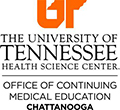
9059: Avoiding Surgical Mishaps - Dissecting the Risks
Course Description
This course provides education and guidance on a broad array of risk issues associated with the practice of surgery by incorporating actual case examples to create a more meaningful review and enhance understanding and retention. The course is designed to focus on practical issues seen in SVMIC claims data. Taking the preventative steps to identify potential problems before they result in patient harm will not only result in improved patient safety but will reduce your chances of being named in a medical malpractice lawsuit. This course examines the most frequent “errors” that either cause or contribute to malpractice claims alleged against surgeons, or make a claim less defensible. We identify strategies to avoid these errors and improve patient safety. And, where possible, incorporate checklists and guidelines developed by professional societies and organizations.
Learning Objectives
- Recognize the most common risk issues associated with the practice of surgery
- List risks of poor communication, documentation, medication errors, and other factors that make a claim or lawsuit indefensible
- Identify risk management strategies to improve delivery of care in the surgical specialty
Credit Awarded
- 10% Premium Credit for Physician Policyholders
- 2.0 CME Credits for Physicians
- Certificate of Participation for Non-Physicians
Faculty & Authors
This course was developed by SVMIC’s Risk Education and Evaluation Department: Shelly Weatherly, JD, VP; Julie Loomis, AVP, Risk Education Program and Development; Jeff Woods, JD, Director of Risk Education Program and Development. Reviewed by Hugh Francis, lll, MD, on September 25, 2019.
CME Information
Accreditation: This activity has been planned and implemented in accordance with the Essential Areas and policies of the Accreditation Council for Continuing Medical Education through the joint providership of the University of Tennessee College of Medicine (UTCOM) and SVMIC. The UTCOM is accredited by the ACCME to provide continuing medical education for physicians.
AMA Credit Designation: The UTCOM designates this enduring material for a maximum of 2.0 AMA PRA Category 1 CreditsTM. Physicians should claim only the credit commensurate with the extent of their participation in the activity.
AAFP: This Enduring Material activity, Avoiding Surgical Mishaps: Dissecting the Risks, has been reviewed and is acceptable for up to 2.00 Prescribed credit(s) by the American Academy of Family Physicians. AAFP certification begins 01/01/2020. Term of approval is for one year from this date. Physicians should claim only the credit commensurate with the extent of their participation in the activity.
AOA: This program is eligible for two (2) credit hours in Category 2-B of the Continuing Medical Education Program of the American Osteopathic Association. Physicians will need to submit a letter of completion from the University of Tennessee directly to the AOA to receive CME credits.
TNA: This continuing nursing education activity was approved by the Tennessee Nurses Association, an accredited approver by the American Nurses Credentialing Center’s Commission on Accreditation.
Continuing Education for Non-Physicians: The UTCOM will issue Certificates of Participation to non-physicians for participating in this activity and designates it for CEUs using the national standard that 1 hour of educational instruction is awarded .1 CEU.
This activity was released on January 1, 2020 and will expire on December 31, 2021. SVMIC will not process any completions after December 31, 2021.

CME Disclosures
No commercial support was received for this activity. No speakers plan to discuss off-label use. No planners or speakers have relevant financial relationships to disclose.

 Facebook
Facebook X
X LinkedIn
LinkedIn Forward
Forward